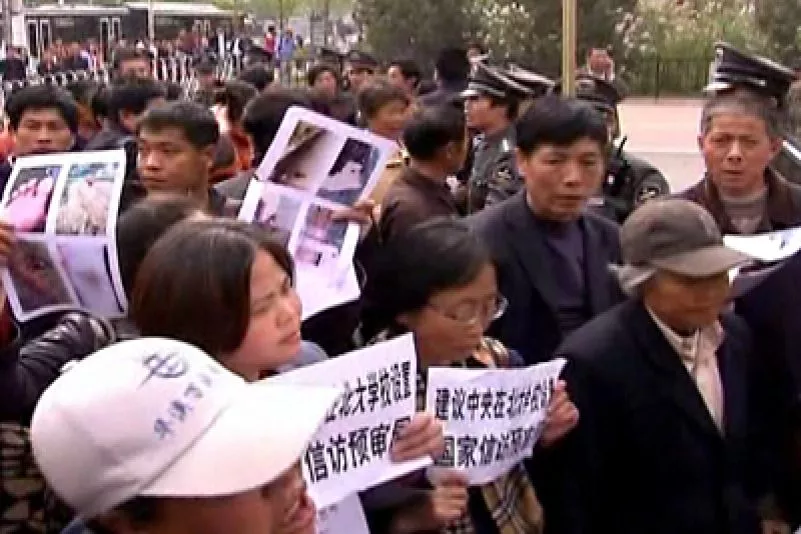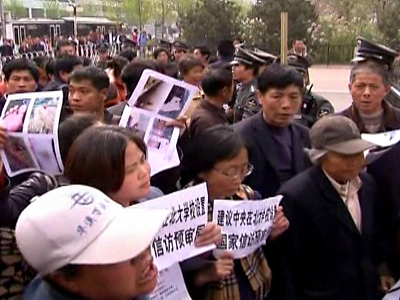NTDTV
China: New Rules Aim to Keep Petitioners out of Beijing

Foto: NTDTV
The Chinese regime has introduced new regulations aimed at stopping citizens from petitioning in Beijing.
Chinese media reports that under the new system, local authorities in every city and province must set aside one day a month to meet with petitioners, and cases are supposed to be resolved within 60 days. Beijing will also send officials to cities with a large number of petitioners to hear cases on the spot.
According to Xinhua News Agency, if petitioners have had their cases heard locally but still go to Beijing to appeal, their cases will be terminated.
NTD spoke with human rights activist Liu Dejun about his thoughts on the new regulations. Liu frequently assists petitioners in Beijing, such as 21-year-old Li Ruirui who was recently raped in a Beijing black jail.
[Liu Dejun, Beijing Human Rights Activist]:
“Fundamentally, it’s not aimed at ending the petitioning system…because in the past they had all gone to Beijing, and [the regime] feels that this puts pressure on it, so now it’s dispersing the pressure through to the various provinces, sending people to the provinces. It’s just another way…not much different from how it used to be.”
“Fundamentally, it’s not aimed at ending the petitioning system…because in the past they had all gone to Beijing, and [the regime] feels that this puts pressure on it, so now it’s dispersing the pressure through to the various provinces, sending people to the provinces. It’s just another way…not much different from how it used to be.”
Netizens are also not optimistic about the new regulations—they say it’s just moving people around without fundamentally solving their problems. Mr. Liu agrees.
[Liu Dejun, Beijing Human Rights Activist]:
“Without genuine rule of law or democratic oversight, these problems will always exist. It’s just that instead of appealing to Beijing, now you appeal to other designated areas. It’s still the same as how it was…being dragged out, or being deceived.”
“Without genuine rule of law or democratic oversight, these problems will always exist. It’s just that instead of appealing to Beijing, now you appeal to other designated areas. It’s still the same as how it was…being dragged out, or being deceived.”
The new regulations come weeks before celebrations begin to mark the 60th anniversary of the Communist regime’s takeover of China—a time when authorities hope to keep disgruntled citizens off Beijing’s streets.
 (NTDTV)
(NTDTV)Kommentare
Noch keine Kommentare – schreiben Sie den ersten Kommentar zu diesem Artikel.
0
Kommentare
Noch keine Kommentare – schreiben Sie den ersten Kommentar zu diesem Artikel.





